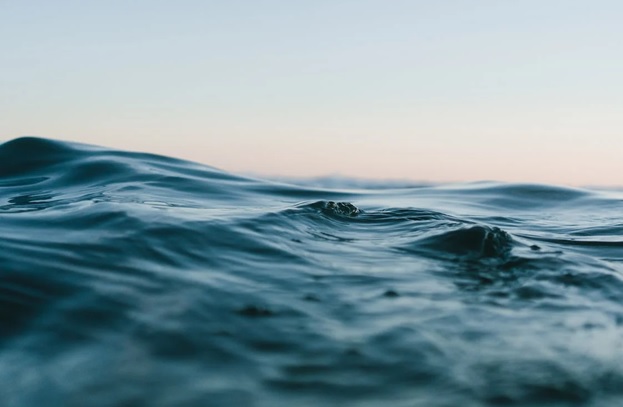Automotive-Grade vs. Marine Battery Cable
20th Mar 2023
One of the most common questions on the internet related to marine battery cable has to do with what the differences are between it and automotive-grade wire.
First, we’ll cover these before getting into some of the other details associated with marine-grade battery wire.
Automotive grade primary wire is just a standard multi-strand copper wire that is twisted together and to which an insulating jacket is applied.
One of the first things you will notice about most automotive-grade battery wire is that it is usually pure - naked - copper.
The problem with automotive-grade battery wire is that it does not perform well in wet environments because water accelerates the corrosion of the copper. Wherever the wire is exposed - such as at connections - it will corrode away. Corrosion can also travel inward under the insulation and along the length of the wire. Saltwater exacerbates this condition even more severely.
This corrosion will cause intermittent electrical problems or just outright failures.
Marine battery cable, like automotive grade wiring is also made of copper strands that are twisted together, although that might not be readily apparent as the copper wires are individually tinned.
This individual-tinning helps protect the exposed copper conductors against corrosion, wherever they are exposed - such as at connections.
The other thing about the practice of tinning marine battery cable is that tinned copper resists corrosion intrusion.
That is, specifically, it is difficult for corrosion to travel up the length of an electrical conductor that has been tinned. This is one of the biggest problems with automotive grade battery wire.
You will also notice that marine grade wire usually is made with conductors that look thinner than their automotive grade counterparts. This is because they are.
This use of very thin conductors results in wire and cable that offers a superior degree of flexibility which is necessary to navigate the tight recesses inside of boats and ships.
In truth, this makes marine-grade battery cable better for some automotive applications - such as under the hood or underneath the car - where the cable may come into contact with water or road salts that can cause corrosion.
These constitute the main differences between automotive-grade and marine-grade battery cable. Let’s investigate some other considerations.
Where Is Marine Cable Used?

In addition to being used widely in automotive and marine applications, marine battery cable can be used for a variety of other applications in diverse conditions.
Marine battery cables are commonly used for power management in communications, for vehicles like RVs, for database and equipment power management, and more. Some marine grade battery cables are also rated for use as solar PV wire.
Versatility is one of the main benefits of marine battery cable. Since it is so flexible, so corrosion-resistant, and made with such practical, protective insulation, it can be used for power management wherever a high-quality, corrosion-resistant cable is necessary.
How Flexible Should Marine Battery Cable Be?
It’s not so much that marine battery cable needs to satisfy a “specific” prerequisite condition for flexibility as it is that flexibility is a trait that adds substantial value.
This should be obvious. The inner recesses of vessels are very tight and unforgiving. It is difficult to draw wire and cable through a hull’s interior, as is establishing connections. Flexible cable is easier to work with and will hold connections better as it has less memory.
Also, flexible cable is more resilient in the face of the constant vibrations and motions to which it is subjected as a result of the engine and to being on the water.
But how flexible should it be? Flexible enough nearly to tie into a knot, and easy to undo again. If that’s how flexible your marine battery cable it, it’s a good starting point.
What Certifications Should Marine Battery Cable Hold?
The more certifications and accreditations a specific marine battery cable holds, the better. Our marine battery wire is UL (Underwriters Laboratory), USCG (United States Coast Guard), and ABYC (American Boat and Yacht Council) approved and provides excellent protection against corrosion and fatigue.
How Does the Insulation Protect the Cable?
b 
Tinned copper conductors only account for a part of the protection that’s built into the design of marine battery cable.
The lion’s share of the protection afforded to this class of electrical cables comes from the insulation that coats it.
Various different types of insulation are applied to marine battery cable, such as PVC and other polymer blends.
However, regardless of material, marine battery wire insulation should protect it thoroughly against moisture and weather, including high and low temperatures. Many of ours are rated to between -20℃ and 105℃.
Quality marine grade wire and cable should also be made with insulation that protects against acids and alkali, as well as against gasoline and oil, which are commonly encountered on vessels.
It’s also a good idea to use a marine grade wire with insulation that offers a great deal of protection against mechanical damage - abrasion resistant marine battery cable is better, all things considered. So is fire-resistant cable.
What Do the Insulation Colors Indicate?
The majority of marine battery cables will be colored red and black because these are the colors associated with battery lead wires.
However, you might also encounter other marine battery wire colors, too. The following are some of the more common ones.
- Red: Positive lead/connection; power distribution from a battery.
- Black: Negative lead/connection.
- White: General use.
- Orange: Used to connect the ammeter to an alternator or generator, can also be used to connect the distribution panel with accessory switches.
- Yellow/Green Yellow: Ground line.
- Green: General use or ground line.
Marine Battery Cable and Much More
If you’re looking for high-quality, corrosion-resistant, extremely flexible, and highly-reliable marine battery cable, you’ve come to the right place. Take a look through our collection of UL and USCG approved marine battery wire via the previous link to learn more.
If you have any questions about marine grade wire specifications or for applicable uses of this type of wire and cable, don’t hesitate to reach out to us at Sales@EWCSWire.com or by phone at 800-262-1598.

